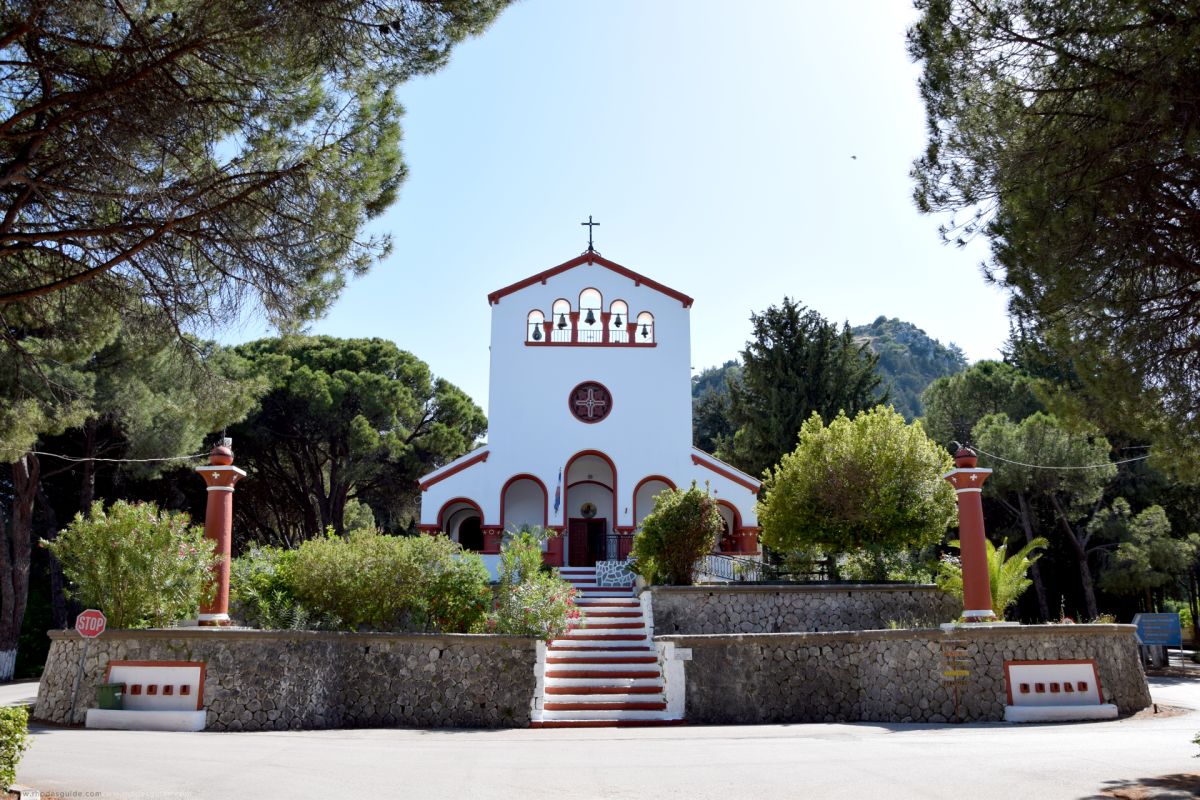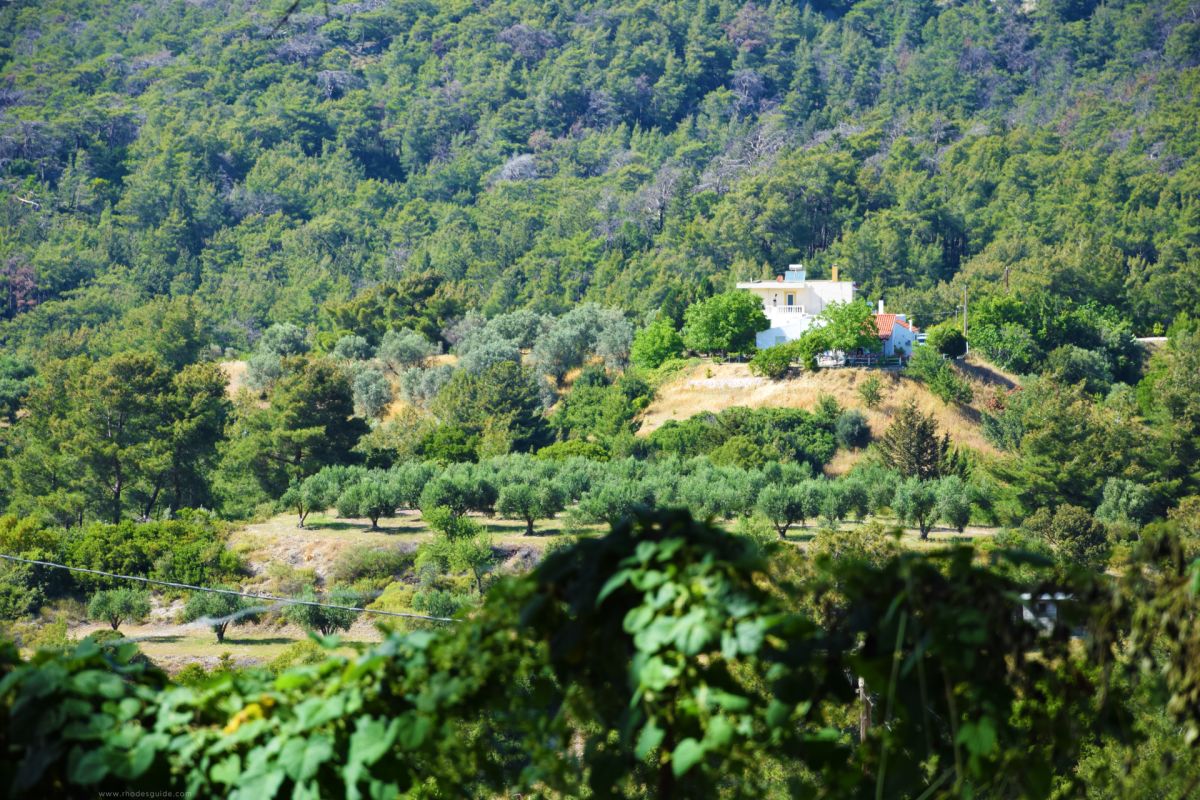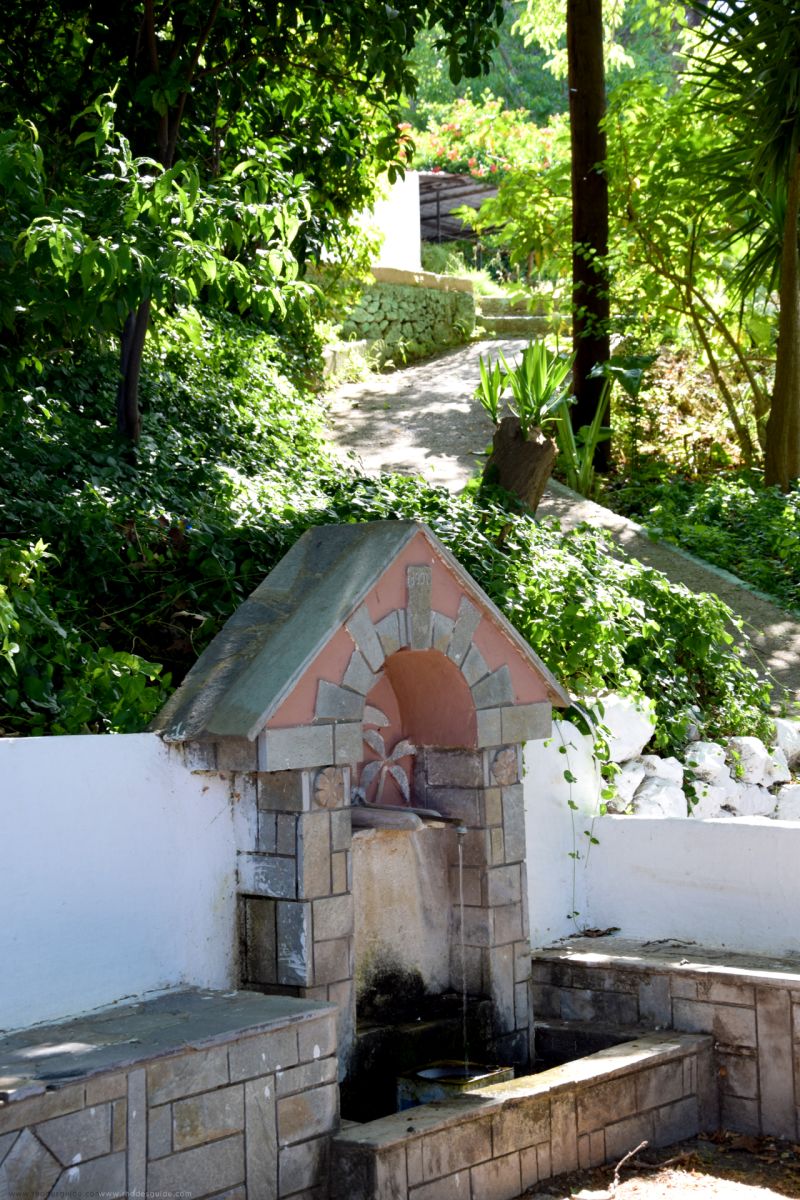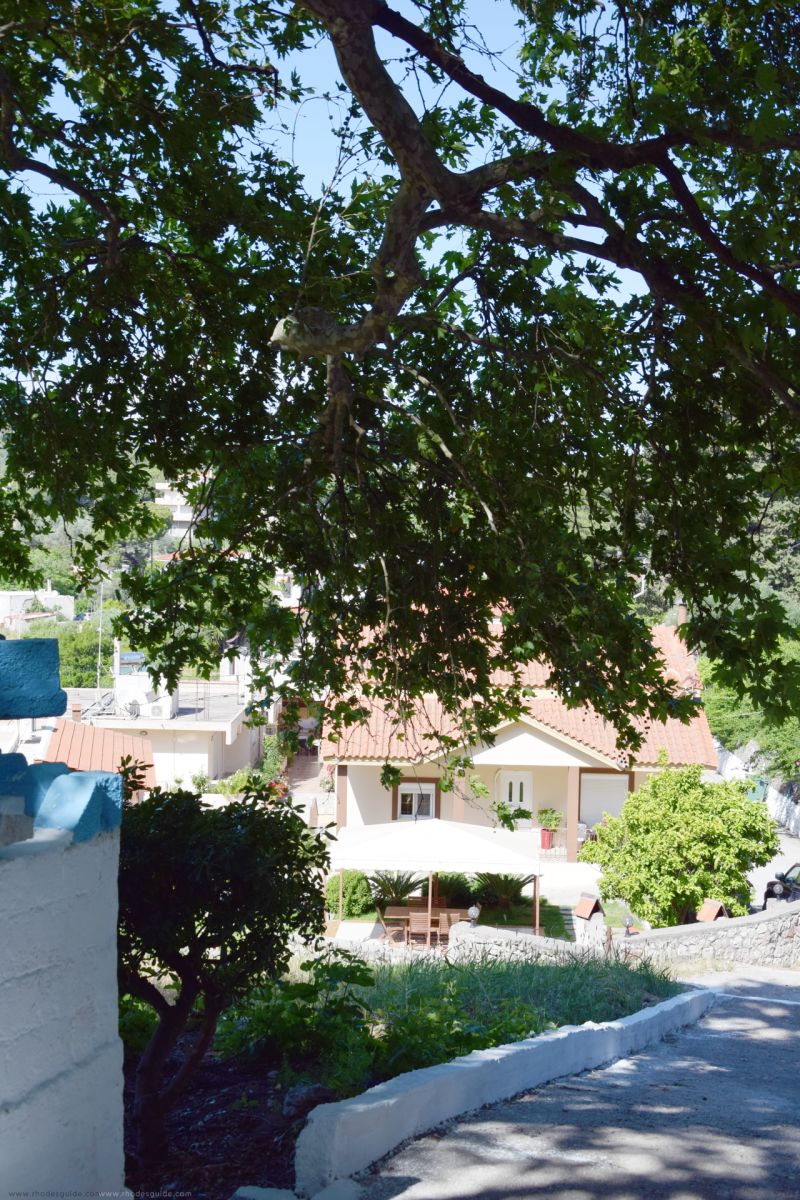Look for the derelict but still imposing Italian sanatorium, and the Italian aqueduct above the village. When the fresh air and exercise have worked their magic on your appetite, try the stuffed kolokythoanthi (zucchini flowers) with cheese, the pitaroudia (savvy pancakes made with pumpkin, tomato and onion), or goat meat cooked in red sauce with beans in one of the local restaurants. Also locals from the surrounding areas love to flock here for a Sunday lunch, and are happy to even drive all the way from Rhodes town, in particular for the excellent mezédes offered.

Eleousa is located in the lush foothills of Mount Profitis Elias (Profitis Ilias), where the official guests of Rhodes used to stay. It was built by the Italians (Campochiaro was its original name) and loggers from northern Italy settled there. Their goal was not only the utilization of timber, but also the care of the forest for tourist reasons.
The square of Eleousa is surrounded by imposing buildings. The largest of them featuring the arches and the small curved balconies was the market. The prison was right across (now operating as a school). On one end of the square stood the sanatorium and on the other the church of Agios Charalámbos (Saint Charalambos), which was once a Catholic and now is an Orthodox church.

A few hundred meters further from the square of Eleousa there is a large round cistern, filled by the waters of the adjacent Koskinisti spring. It is the home of a quite large population of the extremely rare fresh water Gizáni fish, a local type of fish. This is all that remained of a population that no longer exists, that of the Platy stream.



 English
English
 Deutsch
Deutsch
 Ελληνικά
Ελληνικά